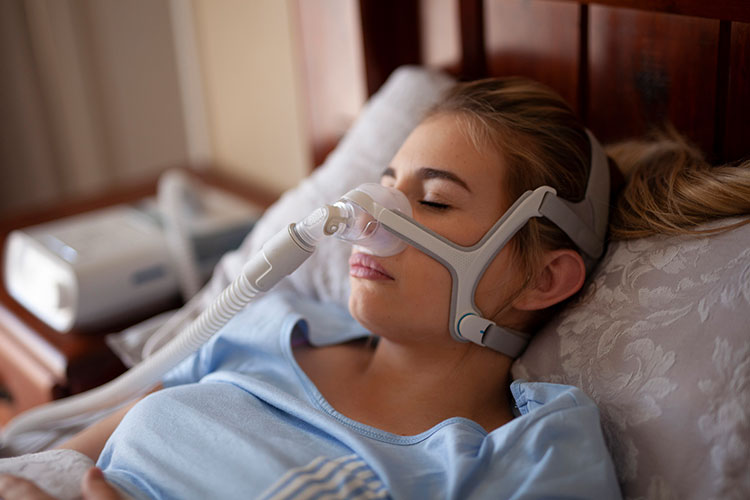Comprehensive Sleep Disorder Treatment - Discover the most effective Solutions
Comprehensive Sleep Disorder Treatment - Discover the most effective Solutions
Blog Article
Effective Therapy Solutions for Handling Sleep Disorders and Enhancing Restful Sleep
In the realm of healthcare, the monitoring of rest disorders and the quest for restful sleep are essential components of overall health. Efficient therapy solutions provide a diverse strategy to tackle these obstacles, ranging from cognitive behavioral interventions to alternative methods that promote leisure and mindfulness. The expedition of numerous techniques, including the integration of medication and light treatment, opens up a realm of possibilities in the pursuit of far better rest quality. As we navigate the detailed landscape of rest conditions and seek to improve our sleep experience, a deeper understanding of these treatment options may hold the secret to opening an extra relaxing and fulfilling corrective trip.
Cognitive Behavior Treatment for Sleeping Disorders (CBT-I)
Cognitive Behavior Modification for Insomnia (CBT-I) is a structured, evidence-based treatment strategy that focuses on addressing the underlying aspects adding to rest disruptions. This kind of therapy aims to change actions and ideas that worsen sleeping disorders, eventually advertising healthy and balanced sleep patterns. CBT-I usually entails numerous key elements, consisting of cognitive therapy, rest restriction, stimulation control, and sleep health education and learning.
Cognitive treatment aids people recognize and transform unfavorable idea patterns and ideas about rest that may be impeding their capacity to drop or stay asleep. Sleep restriction involves restricting the quantity of time spent in bed to match the individual's real rest period, thereby boosting sleep effectiveness (sleep improvement therapy). Stimulus control techniques aid establish a solid organization in between the bed and rest by motivating people to visit bed only when sleepy and to stay clear of participating in stimulating tasks in bed
Furthermore, rest health education concentrates on creating healthy and balanced sleep practices, such as preserving a constant sleep schedule, developing a relaxing going to bed regimen, and enhancing the rest setting. By attending to these variables adequately, CBT-I offers an effective non-pharmacological intervention for handling insomnia and improving total sleep top quality.
Rest Hygiene Practices
Having developed the structure of cognitive restructuring and behavioral adjustments in resolving sleep problems with Cognitive Behavior modification for Insomnia (CBT-I), the focus now moves in the direction of discovering essential Sleep Hygiene Practices for keeping optimal rest high quality and total health.
Rest hygiene practices include an array of practices and ecological elements that can significantly impact one's capacity to go to sleep and remain asleep throughout the night. Consistent rest and wake times, producing a relaxing bedtime routine, and optimizing the rest setting by maintaining it dark, peaceful, and cool are crucial components of good rest health. Limiting exposure to screens prior to bedtime, preventing stimulants like high levels of caffeine near to going to bed, and involving in normal exercise during the day can likewise advertise far better rest quality.
Furthermore, exercising leisure methods such as deep breathing workouts or meditation before bed can aid soothe the mind and prepare the body for rest. By integrating these rest health practices into one's everyday regimen, people can develop a healthy and balanced rest pattern that sustains peaceful sleep and total wellness.
Relaxation Strategies and Mindfulness
Implementing relaxation strategies and mindfulness methods can play a crucial function in fostering a feeling of tranquility and advertising high quality rest. insomnia counseling. These techniques aim to peaceful the mind, minimize anxiety, and develop an ideal setting for peaceful rest. One extensively practiced technique is deep breathing exercises, where individuals focus on sluggish, deep breaths to relax the mind and body. Modern muscular tissue relaxation involves tensing and afterwards releasing each muscle mass group, advertising physical leisure. Additionally, directed imagery can aid deliver individuals to a tranquil location in their minds, helping in anxiety reduction and improving rest quality.
Mindfulness methods, such as reflection and yoga, are also reliable in promoting relaxation and enhancing rest. Mindfulness motivates individuals to remain present in the moment, releasing fret about the past or future. By including these techniques right into a going to bed regimen, individuals can indicate to their bodies that it is time to take a break and prepare for rest. On the whole, incorporating relaxation methods and mindfulness practices can substantially add to handling sleep conditions and boosting total sleep top quality.

Medication Options for Rest Disorders
After exploring relaxation methods and mindfulness practices as non-pharmacological interventions for improving sleep high quality, it is vital to consider medicine alternatives for individuals with sleep night terrors 18 months conditions. In situations where lifestyle changes and therapy do not supply sufficient alleviation, medication can be a beneficial device in taking care of rest disruptions.
Commonly prescribed medications for rest disorders include benzodiazepines, non-benzodiazepine hypnotics, antidepressants, and melatonin receptor agonists. Benzodiazepines, such as diazepam, are sedatives that can assist cause rest, yet they are usually suggested for short-term usage because of the threat of dependancy. Non-benzodiazepine hypnotics like zolpidem are additionally used to deal with insomnia and have a reduced risk of dependancy compared to benzodiazepines. Antidepressants, such as trazodone, can be beneficial for people with co-occurring anxiety and sleep disturbances. Melatonin receptor agonists, like ramelteon, target the body's all-natural sleep-wake cycle and can be practical for controling rest patterns.
It is vital for people to consult with a doctor to figure out the most appropriate medicine option based upon their certain sleep problem and clinical background.
Light Therapy for Circadian Rhythm Regulation
Light therapy, also called phototherapy, is a non-invasive therapy technique made use of to regulate body clocks and boost sleep-wake cycles. This therapy entails exposure to bright light that imitates all-natural sunshine, which aids to reset the body's biological rhythm. By revealing people to certain wavelengths of light, commonly in the morning or evening relying on the preferred effect, light treatment can properly adjust the circadian rhythm to advertise wakefulness throughout the day and improve relaxed sleep in the evening.
Research has actually revealed that light therapy can be especially helpful for people with body clock disorders, such as postponed sleep phase disorder or jet lag. It can also be helpful for those experiencing seasonal depression (SAD), a kind of anxiety that generally occurs during the cold weather when natural light direct exposure is lowered. Light treatment is usually well-tolerated and can be used together with other therapy techniques for rest conditions to maximize results and boost overall rest top quality.
Verdict
In verdict, reliable treatment remedies for taking care of sleep disorders and improving peaceful sleep consist of Cognitive Behavioral Treatment for Insomnia (CBT-I), sleep hygiene practices, leisure methods and mindfulness, medicine choices, and light therapy for circadian rhythm regulation. These strategies can help people improve their sleep quality and total health. It is vital to speak with a doctor to identify one of the most suitable strategy for attending to rest issues.
As we browse the detailed landscape of rest problems and seek to more improve our rest experience, a deeper understanding of these therapy options may hold the trick to unlocking a much more rejuvenating and satisfying corrective journey.
Sleep restriction includes limiting the quantity of time spent in bed to match the individual's real rest duration, thereby enhancing rest efficiency. Regular sleep and Visit This Link wake times, developing a relaxing going to bed regimen, and enhancing the sleep setting by keeping it dark, peaceful, and cool are vital parts of good rest hygiene. Light therapy is normally well-tolerated and can be made use of in combination with various other treatment methods for rest problems to maximize end results and enhance overall sleep high quality.

Report this page